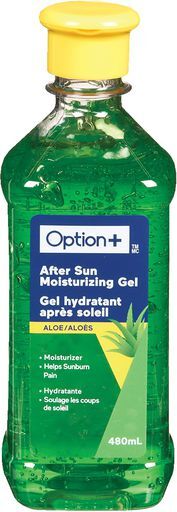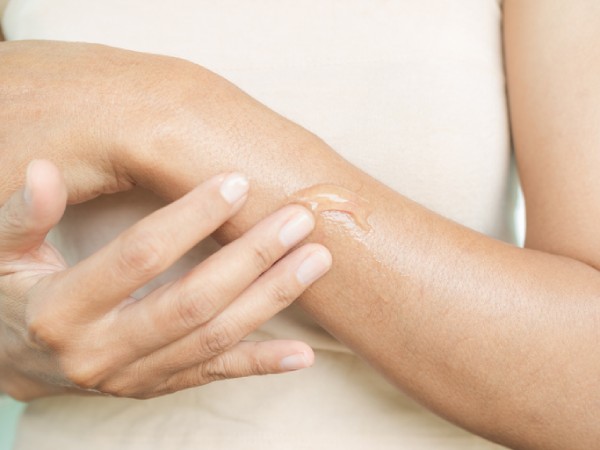Have you ever considered the remarkable effects a simple plant could have on your health? Aloe vera, a succulent native to tropical climates, has been revered for centuries for its extensive health benefits, particularly the soothing gel extracted from its leaves.
Known for its healing properties, aloe vera gel offers a natural, effective solution for various skin concerns and beyond.
In this article, we’ll explore everything you need to know about aloe vera gel, including its many uses and common benefits, while also sharing important precautions when beginning to use it.
What Is Aloe Vera Gel?
Aloe vera gel is derived from the leaf of the aloe vera plant, a succulent species that stores water in its leaves, allowing it to survive in arid climates.
The gel itself is a thick, translucent substance found within the inner part of the leaf. It’s primarily composed of water but also contains vitamins, enzymes, minerals, and amino acids that can be beneficial for the body.

Aloe Vera Plant vs OTC Gel
When discussing aloe vera and its benefits, it’s important to distinguish between the gel directly extracted from the aloe vera plant and over-the-counter (OTC) aloe vera gel products.
Aloe Vera Plant Gel
This gel is sourced directly from the aloe vera plant’s leaves. It’s the raw, pure gel found within the leaf.
Studies have shown that the aloe vera plant contains several vitamins, enzymes, minerals, and amino acids, each offering varying levels of potential benefits.
Because the gel from the aloe vera plant is fresh and unprocessed, it retains all the natural enzymes and nutrients at their most potent and effective state.
This means there are no added chemicals or preservatives, which makes it ideal for those who are sensitive to additives or prefer a more natural product.
Considerations:
- Shelf Life: Fresh aloe vera gel has a limited shelf life and must be used within a few days unless properly stored or preserved.
- Inconsistency: The concentration of active ingredients can vary significantly from plant to plant, which might affect the consistency and effectiveness of the gel.
Over-The-Counter (OTC) Aloe Vera Gel
OTC aloe vera gel is manufactured and packaged, often sold in pharmacies and supermarkets.

These products usually contain preservatives, thickeners, emollients, and sometimes fragrances to enhance shelf life, texture, and sensory appeal.
The amount of actual aloe vera in OTC products can vary widely, and some may contain only a small percentage of aloe vera mixed with other ingredients.
These products are easy to store, with a much longer shelf life than fresh aloe vera gel.
Many OTC gels are designed to target specific problems like acne, sunburn, or dry skin, with added ingredients to enhance the aloe’s effects for these issues.
Considerations:
- Potential Irritants: The added chemicals and preservatives can cause skin irritations or allergic reactions in sensitive individuals.
- Diluted Benefits: Because these products can contain various added ingredients, the natural benefits of aloe vera might be diluted.
Choosing Between Them
If you’re looking for a highly natural, potent product and can manage the shorter shelf life, fresh aloe vera gel directly from the plant is ideal.
If convenience, longer storage, and specific skin care needs are your priority, OTC aloe vera gels might be more suitable, provided you choose a product with a high concentration of aloe vera and minimal additives.
It’s important to note that some over-the-counter aloe vera gels can contain alcohol, which can be drying. For those using it to ease the symptoms of sunburns or eczema, where moisture becomes paramount, look for alcohol-free aloe vera gels.
Individuals with sensitive skin or allergies may prefer the plant gel to avoid potential irritants found in some OTC products.
In summary, both forms of aloe vera gel have their place in skincare and health routines. Your choice will depend on your specific needs, preferences, and how you plan to use the product.
Always check the labels of OTC products to ensure you are getting a high-quality gel that maximizes the benefits of aloe vera.

Aloe Vera Gel Benefits For Your Health
Aloe vera gel is renowned for its soothing properties on the skin, but its benefits may extend beyond just surface-level relief. Below are some potential health benefits of aloe vera gel:
Soothing Sunburn
Aloe vera gel is commonly used for its potential to soothe sunburned skin.
The gel contains cooling properties and may contain compounds that help reduce inflammation and discomfort associated with sunburn.
It can also provide hydration, which may aid in the skin’s recovery process.
Healing Wounds, Burns, and Cuts
Aloe vera’s antimicrobial and antibacterial properties can potentially accelerate the healing of minor cuts, burns, and wounds, according to Mayo Clinic.
Applying aloe vera gel directly from the plant may serve as a protective barrier, potentially shielding the affected area from bacteria and supporting improved healing.
Reducing Acne
The antimicrobial properties of aloe vera may be beneficial in treating acne. Applying aloe vera gel to the skin may help to clear breakouts by cleansing the pores and soothing redness and irritation.
While aloe vera can be a helpful treatment for acne, it may work best when used in conjunction with a comprehensive skincare regimen prescribed by a healthcare provider.
Alleviating Psoriasis and Eczema
For individuals experiencing chronic skin conditions such as psoriasis and eczema, aloe vera gel may provide some relief.
Its moisturizing effects, combined with potential anti-inflammatory properties, can help to soothe the skin, possibly reducing redness and scaling.
Moreover, aloe vera may help to improve the skin’s natural barrier function, which is often compromised in such conditions.
However, it’s advisable for individuals to consult with their pharmacist to ensure that aloe vera gel is appropriate for their specific condition and to discuss how it can fit into their overall treatment plan.
While aloe vera gel can be a beneficial natural remedy, its effects may vary from person to person.
Users should approach its application with realistic expectations and consider it as one component of a broader health or skin care strategy.
Always consider the specific characteristics and needs of your skin, and consult with a healthcare professional, such as your PharmaChoice pharmacist, if you have concerns about using aloe vera gel.
Aloe Vera Gel vs. Other Natural Remedies
In the realm of natural skincare and health remedies, aloe vera stands alongside other popular options like coconut oil, tea tree oil, and shea butter.
Each of these natural products offers unique benefits and can be used for similar conditions. Understanding their differences can help you choose the right remedy for your needs.
Aloe Vera vs. Coconut Oil:
- Aloe Vera: Best known for its soothing and cooling properties, aloe vera is ideal for aiding in the treatment of burns, sunburns, and minor wounds. It’s also great for hydrating the skin without leaving a greasy residue.
- Coconut Oil: Rich in fatty acids, coconut oil is excellent for deep moisturization and is known for its ability to strengthen the skin barrier. However, it can be comedogenic (pore-clogging) for some skin types, potentially worsening acne conditions.
Aloe Vera vs. Tea Tree Oil:
- Aloe Vera: Gentle on the skin, aloe vera can be used by most people without any adverse reactions. Its anti-inflammatory and hydrating properties make it suitable for soothing irritated skin and hydrating dry patches.
- Tea Tree Oil: Highly antimicrobial and antifungal, tea tree oil is effective for treating acne and fungal infections. However, it must be diluted before application as it can be very harsh and irritating in its pure form.
Aloe Vera vs. Shea Butter:
- Aloe Vera: With its light texture and cooling effect, aloe vera is a go-to for acute skin issues like sunburn, providing hydration and potentially supporting the healing process.
- Shea Butter: Known for its rich, emollient properties, shea butter is better suited for chronic dryness and protecting the skin in cold weather. Its thick consistency is nourishing but might be too heavy for oily skin types.
In conclusion, while aloe vera may help support acute skin issues and provide general hydration without heaviness, oils like coconut and shea are better for intense moisturization. Tea tree oil stands out for treating bacterial or fungal issues but requires careful application due to its potency.
Safety and Precautionary Tips When Using Aloe Vera Gel
Aloe vera is widely regarded as safe for most people, but like any remedy, it can cause adverse reactions in sensitive individuals. Here are some safety and precautionary tips to ensure safe use:
Patch Testing:
Before using aloe vera for the first time, especially if you have sensitive skin, perform a patch test. Apply a small amount of the gel to the inside of your wrist or elbow and wait 24-48 hours to observe any reaction.
An allergic reaction to aloe vera might include redness, itching, or swelling at the application site. In rare cases, it can cause hives or even difficulty breathing, which would require immediate medical attention.
When to Avoid Aloe Vera:
- Pregnancy and Breastfeeding: The use of aloe vera gel on the skin is generally considered safe during pregnancy and breastfeeding, however, it’s important to always verify with your healthcare practitioner before adding it into your routine.
- Deep Cuts or Severe Burns: While aloe vera may be beneficial for minor burns and wounds, it should not be applied to open, deep, or bleeding wounds. In such cases, seeking professional medical treatment is advised.
- Underlying Conditions: Individuals with conditions like dermatitis should consult a healthcare provider before using aloe vera, as it may exacerbate symptoms in some cases.
By understanding these safety tips and recognizing the unique benefits of aloe vera compared to other natural remedies, you can make informed decisions about incorporating this versatile plant into your health and skincare routines.
 Back to myNiagaraOnline
Back to myNiagaraOnline
































